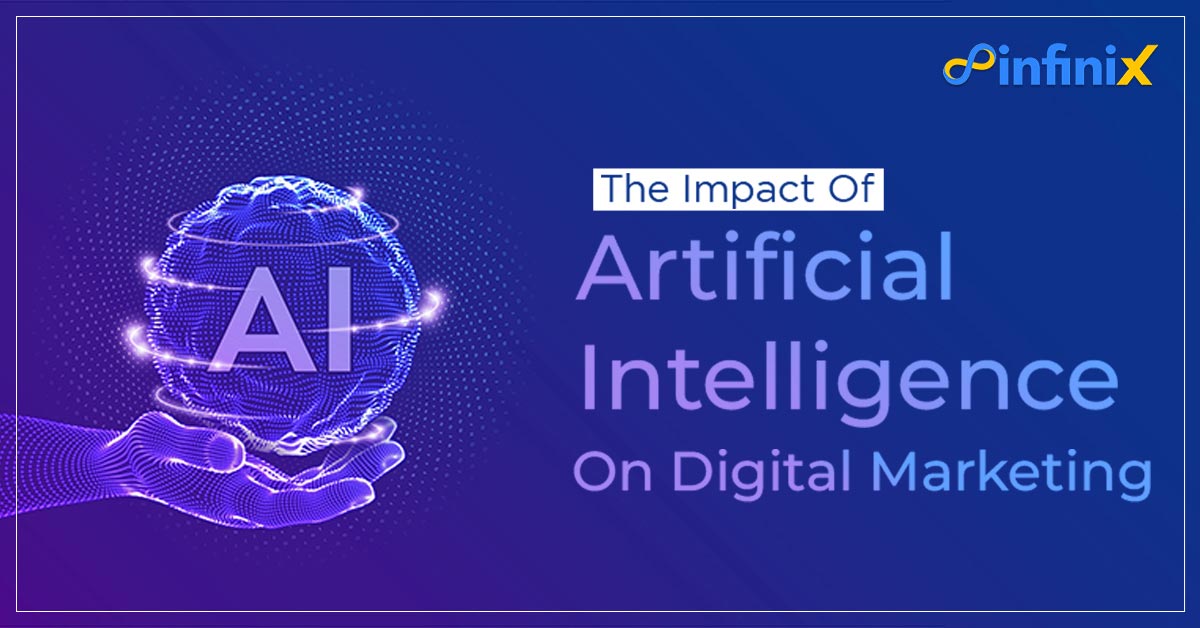In the last few years we can see that there is a high rise of Artificial Intelligence (AI) in the various sectors and have changed the traditional workflow. This technology has not left the digital marketing industry as well by automating certain tasks such as consumer prediction, analyzing consumer data and many more. Hence, it can be said that AI has redefined the ways with which in-house marketing teams and digital marketing agenices operate. This blog explores the impact of AI on the industry, highlighting its overall effectiveness.
What Is Artificial Intelligence?
Artificial intelligence (AI) is an innovation that can accomplish activities that need human intelligence and perform those activities with speed and accuracy. These include problem-solving, emotional recognition, and even disease diagnosis.
What Are The Ways It Helps Digital Marketing?
These Artificial intelligence technologies are used in today’s digital marketing process in various ways, such as
- Content moderation and generation
- Ad targeting and analysis
- Social media listening
- Brand awareness
- Churn predictive analytics
- Data analysis
- Image recognition
- The Impact
AI is changing digital marketing by automating tasks that human workers previously performed. AI can now be used to create targeted ads, write copy, and design websites. This automation can free up time for marketers to focus on other tasks.
AI is also altering how marketers interact with their customers. Chatbots powered by AI, for example, are increasingly being used to provide customer support and answer questions. AI may be used to perform more sophisticated tasks, such as identifying potential customers and understanding their needs.
AI is reshaping digital marketing in a variety of ways. It is automating some previously manual tasks, changing how marketers interact with customers and providing new opportunities for targeting and personalization.
The Challenges Of Using AI In Digital Marketing
As technology advances, digital marketing becomes more complex. AI is one of the most recent technologies to enter the digital marketing landscape, and it already has a significant impact.
However, AI is posing new challenges to digital marketers. Here are some of the most significant challenges associated with using AI in digital marketing:
1. Ensuring Data Quality And Cleansing:
To be effective, AI requires high-quality data. This data can be challenging to obtain, let alone cleanse and prepare for use in AI algorithms. The AI algorithm is the programming that instructs the computer on how to learn to function on its own.
2. Obtaining The Support Of Decision-Makers:
AI is difficult to sell to decision-makers unfamiliar with the technology or its potential benefits. Marketers must make a compelling case for why investing in AI is worthwhile.
3. AI Connection And Implementation:
Once approved, implementing and connecting AI to existing systems and workflows is challenging. The process can be a time-consuming and difficult procedure.
4. Expectations Management:
Managing expectations about what artificial intelligence can and cannot do are critical for marketers who get too excited about the possibilities of AI risk overpromising and under delivering.
The digital marketing industry is rapidly changing, owing mainly to the advancement of artificial intelligence. AI technologies have made it easier and faster for businesses to target customers with personalized messages to increase sales. Traditional advertising models have also been improved by providing more accurate insights into customer behavior patterns and streamlining content creation and optimization processes. As technology evolves, so will businesses’ marketing strategies that want to remain competitive in this rapidly changing landscape.
infiniX360 stands as the prominent example in the digital marketing field as we adapt to the evolving technologies and industry trends. Our branding agency in Chennai is empowered through such integrations offering in-depth insights over the customer behavior, and modifying the strategies based on the real-time data. Hence, approach to stay ahead of your customers in this competitive ever-evolving platform.

